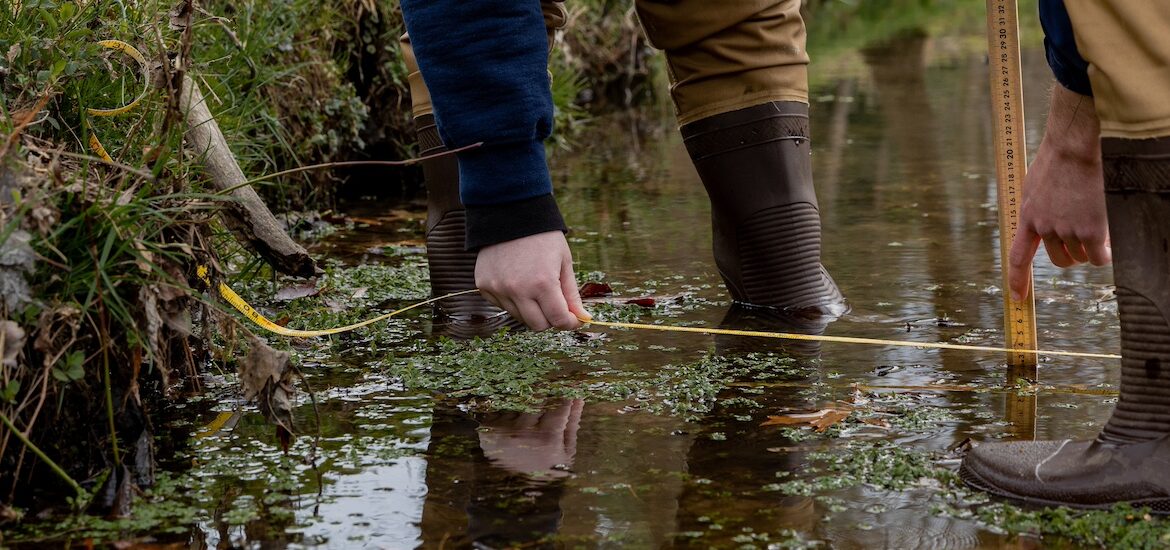Hands-On Science That Goes Beyond the Classroom
Dive into what it’s really like to take Field Methods in Environmental Science at Rowan. This student-led video gives you a real‑world look at how classroom learning meets fieldwork—and why this class is a standout for majors in the School of Earth & Environment.
🎥 What You’ll See in the Video
- Real student footage of sampling water and soil in New Jersey public lands
- Hands-on use of field gear like GPS units, drones and portable testing kits
- Faculty guidance in organizing field days and interpreting real-world data
- Student reflection on how these experiences shape understanding and career confidence
🌱 Why Field Methods Stands Out
- Built for experience: Students venture into forests, streams and ecological sites using core scientific tools—water sampling, soil testing, GIS drones—as they apply scientific methods in the field.
- Integrated learning: As part of the environmental science curriculum, this course blends biology, geology, chemistry and data analysis into one immersive experience.
📚 Why It Matters for Your Major
Rowan’s Environmental Science program emphasizes field‑based experiences starting early and continuing through senior seminars. Field Methods gives you the technical foundation for internships, research or field-based careers.
🔍 What You Learn
This course teaches more than science—it builds skills in research planning, data collection and analysis, science communication and ecosystem literacy. It’s the kind of hands-on training that stays with you long after the semester ends.
📌 Environmental Science Careers
- Environmental Consultant – Advises businesses or government agencies on how to minimize environmental impact and comply with regulations.
- Wildlife Biologist – Studies animals and their habitats, often working in conservation or research roles.
- Environmental Educator – Teaches communities, schools or organizations about sustainability, ecosystems and conservation practices.
- Conservation Scientist – Manages the overall land quality of forests, parks, rangelands and other natural resources.
- Environmental Health and Safety Specialist – Ensures safe working conditions and compliance with environmental health regulations.
- Field Technician – Collects soil, water, air or biological samples to support environmental studies or monitor sites.
- Sustainability Coordinator – Develops and implements strategies to reduce an organization’s environmental footprint.
- Environmental Policy Analyst – Researches and analyzes policies that affect the environment and advocates for legislative change.
- GIS Specialist – Uses geographic information systems to map and analyze environmental data and support decision-making.
- Hydrologist – Studies water cycles and distribution, helping manage water resources and predict flooding or droughts.
💡 In Summary
This video highlights what makes Field Methods a favorite course for Rowan Environmental Science students—engaging fieldwork, team-based projects and practical experience that prepares you for life after graduation.
Internship & Experiential Learning Stories
Learn how Rowan Profs go Beyond the Classroom to grow professionally, as well as personally, through internships and other experiential learning. Experiential learning includes hands-on learning opportunities provided through research, student clubs, campus leadership, student worker jobs, service-learning projects and volunteerism. In addition, Rowan’s Office of Career & Professional Development provides career support that’s more than just advice – it’s events, connections and real guidance to help students thrive after college.

